You don’t win many prizes or plaudits for standing still, which is why Spanish wine giant, Felix Solis, is making serious steps in to becoming a major producer of sparkling wines and a respected Chilean wine producer in its own right.
If you had to come up with a list of the top bottled branded players in the Spanish wine market then Felix Solis would have to be near the top. In fact if you were doing a chart for the biggest wineries in the world then it would also deserve a position all of its own.
The recent World Ranking of Wines and Spirits producers had Felix Solis down in sixth place in its top 100 Best Wineries of the World and runners up in its Best Wineries of Spain list.
But scratch blow the surface and you might be surprised about what is going on at the wider Félix Solís Avantis group, which has wineries and interests in most regions of Spain including Castilla-La Mancha, Ribera del Duero, Rueda, Rioja and Toro.
Yes, it’s major focus remains branded, mainly red Spanish wine, with flagship global brands such as Albali.
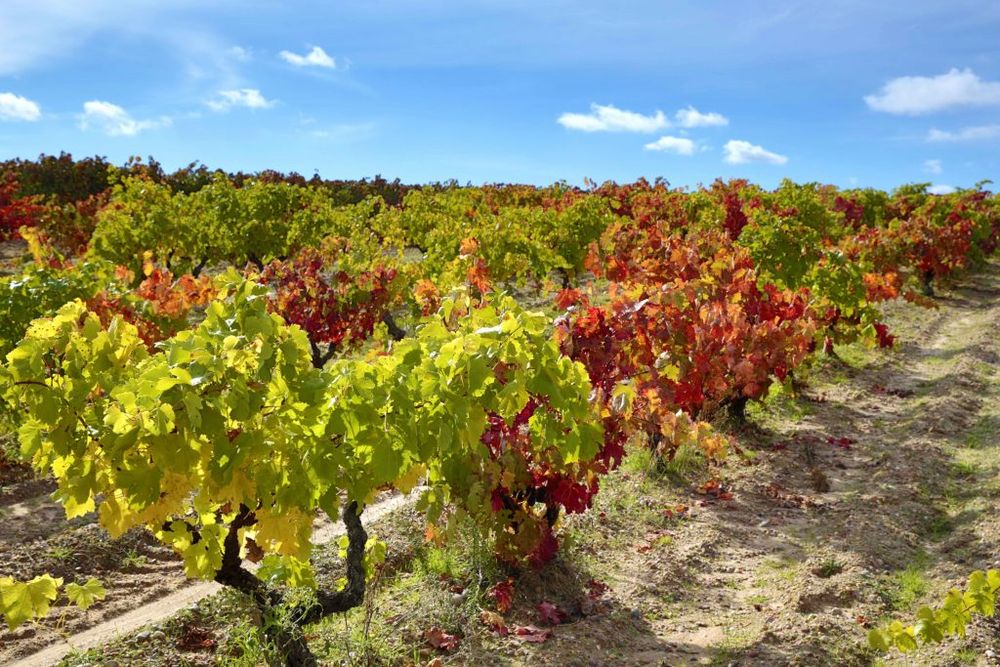
Felix Solis vines from the Ribera del Duero
Sparkling move
But things are about to get very different at what on paper appears a very traditional Spanish wine operation. Arguably it’s boldest move is an attempt to really shake up the sparkling wine category by introducing a series of tank fermented, and what it claims will be easy drinking, fresher sparkling styles that could potentially take on Prosecco not just in how they taste, but how much they cost.
Cochrane is confident its new sparkling wine innovations are also going to completely change trade buyers perceptions about what Felix Solis can do for them.
Up to now, he says, Spain has to hold its hands up and say the Italians, particularly from the north, have won the battle over sparkling wine. For all its quality credentials Cava has not won the hearts and minds of shoppers in the way that Prosecco has.
“Sales of Cava have not seen the explosion in sales that Northern Italy has,” says Cochrane.
But that does not mean there is not a role for Spanish wine to play. Far from it. In fact, it might now be better placed than ever to take advantage of the fact that Prosecco simply is not going to be able to keep its price points down on the back of such a bad 2017 harvest.
Prosecco alternative
Does that mean consumers are going to stop drinking sparkling wine? Cochrane believes they will be looking for alternatives in the price point area that Prosecco is in danger of not being able to serve.
He explains: “We want to make a new sparking wine style from Spain that we know consumers will enjoy. So we are moving away from the Cava bottle fermented style to a tank fermented approach where by picking earlier, to get lower PH, we can get fresher acidity in to the wines.”
Fresh, easy drinking wines that you can still buy for less than £9 or £8 a bottle.
It’s why it makes good commercial as well as wine sense for Spain to create new non-Cava styles of sparkling wine. “There is a risk price inflation will take sparkling wine and potentially Prosecco away from what is seen as that affordable space. Spain has the potential to keep that affordable price point which consumers are still going to want to shop in.”
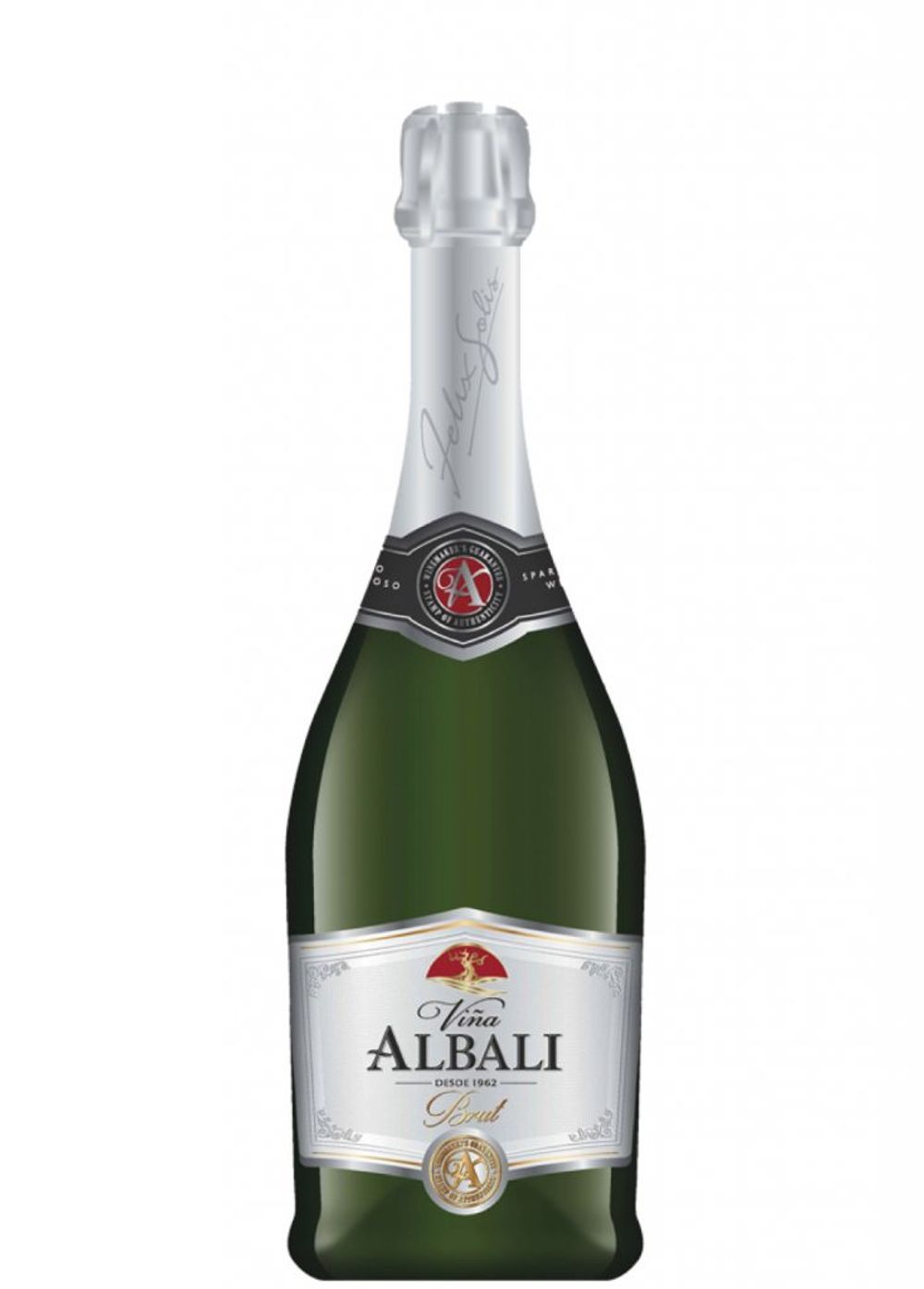
Albali: bringing Spanish brand power to sparkling wine
Felix Solis can also throw brand power in to the mix and its leading Spanish brand, Albali. For as well as a Prospero Brut brand which retails at around £7 to £8 in the UK, it is also introducing a sparkling version of Albali also for around £8.
Cochrane adds: “We have wanted to do this for some time and we think the time is right to bring a major brand to bear on the sparkling category. We have had a great response from both customers and consumers who seem to like this style.”
Felix Solis has also looked at the soft drinks industry to see how it too can add fizz to still wines. It has found that by using carbonation technology it can remove dissolved oxygen and replace it with dissolved CO2. By using a low temperature of 2 degrees C it means it can also add fine persistent bubbles to the still wine.
The initial result of this process is its Provetto brand that it is targeting at price sensitive customers for around £5 to £6.
The exciting news for Felix Solis and the wider sparkling wine market is that it is seeing demand from right across the world for these new products. “It started off as a UK ambition,” admits Cochrane, “but quickly moved to be an international opportunity.”
Moving to Chile
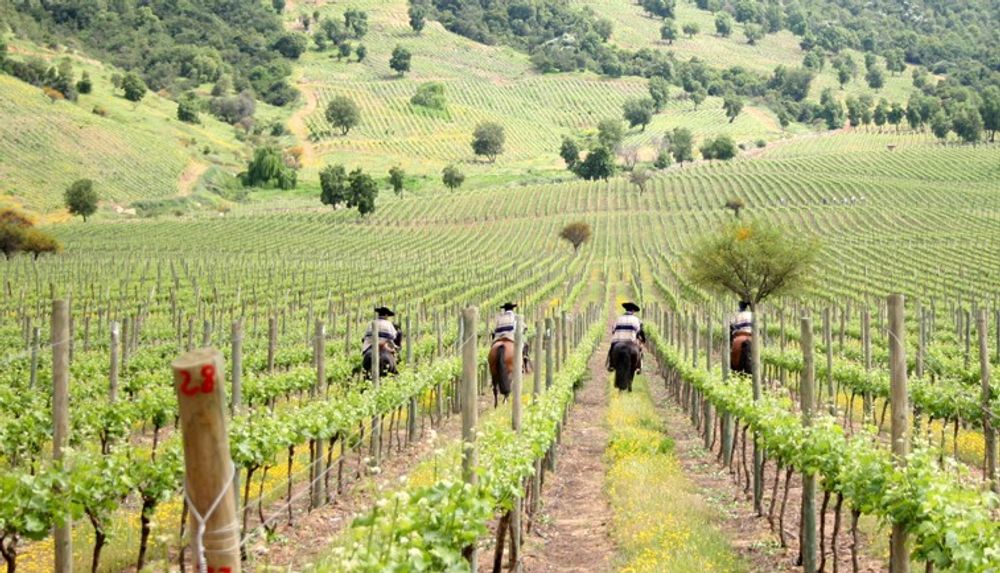
Felix Solis sees a big opportunity to capitalise on Chile’s Free Trade Agreement with China by developing its own wines there
It is also busy spreading its net outside of Spain for really the first time with an ambitious project to make and ship wine from Chile, not just to Spain, but to key markets around the world.
This brings it far more in to the bulk wine arena and makes Felix Solis a very different prospective company to work with than it did just, say, 18 months ago.
Cochrane says the fast changing dynamics of the global wine industry means it is imperative a group of the size, scale and influence of Felilx Solis continuously adapts to meet and capitalise on growing and future trends.
“We are currently facing”, he adds, “an unprecedented combination of huge wine shortages on the back of bad global harvests, with potentially 31 million hectolitres of wine to go around, and challenging currency conditions which means price rises, and at least price instability, in many markets is inevitable.”
Market conditions that underline the important strategic step it has taken in building its own winery in Chile, as well as sourcing and creating its own brands, and providing an additional resource to work with its customers to develop more exclusive and own label brands.
It means Felix Solis can now look to source and contract out wine growers across Chile and buy in grapes and build scale depending on how the market reacts to its wines. “We can either bottle locally or ship in bulk depending on what is needed,” says Cochrane.
The reason Chile was such an attractive prospect to set up its first international winery was how it has become such a key trading partner for so many growing markets around the world with a succession of potentially highly lucrative Free Trade Agreements. It is, for example, the fastest growing imported wine country in to China thanks to a recent FTA. “Their fruit forward styles of wine also make their wines very popular there,” says Cochrane.
Top 10 Chilean player
It is building its winery’s capacity gradually, but on a vast sacale. The first phase means it is able to handle up to 10m litres of wine and then a second phase will take that up to 20m litres. But already the scale of the winery puts in the Top 10 of Chilean producers and the second phase will make it one of the top 3 Chilean players.
Clearly it also helps a business that currently has all its heuvos in a Spanish basket to diversify and “balance things out a bit,” adds Cochrane, “and changes our conversation with our customers”.
Chile is also a relevant New World partner to have for Spain’s equally fruity wine styles.“By having wines from Chile it means we can service more of our customers’ needs,” explains Cochrane.
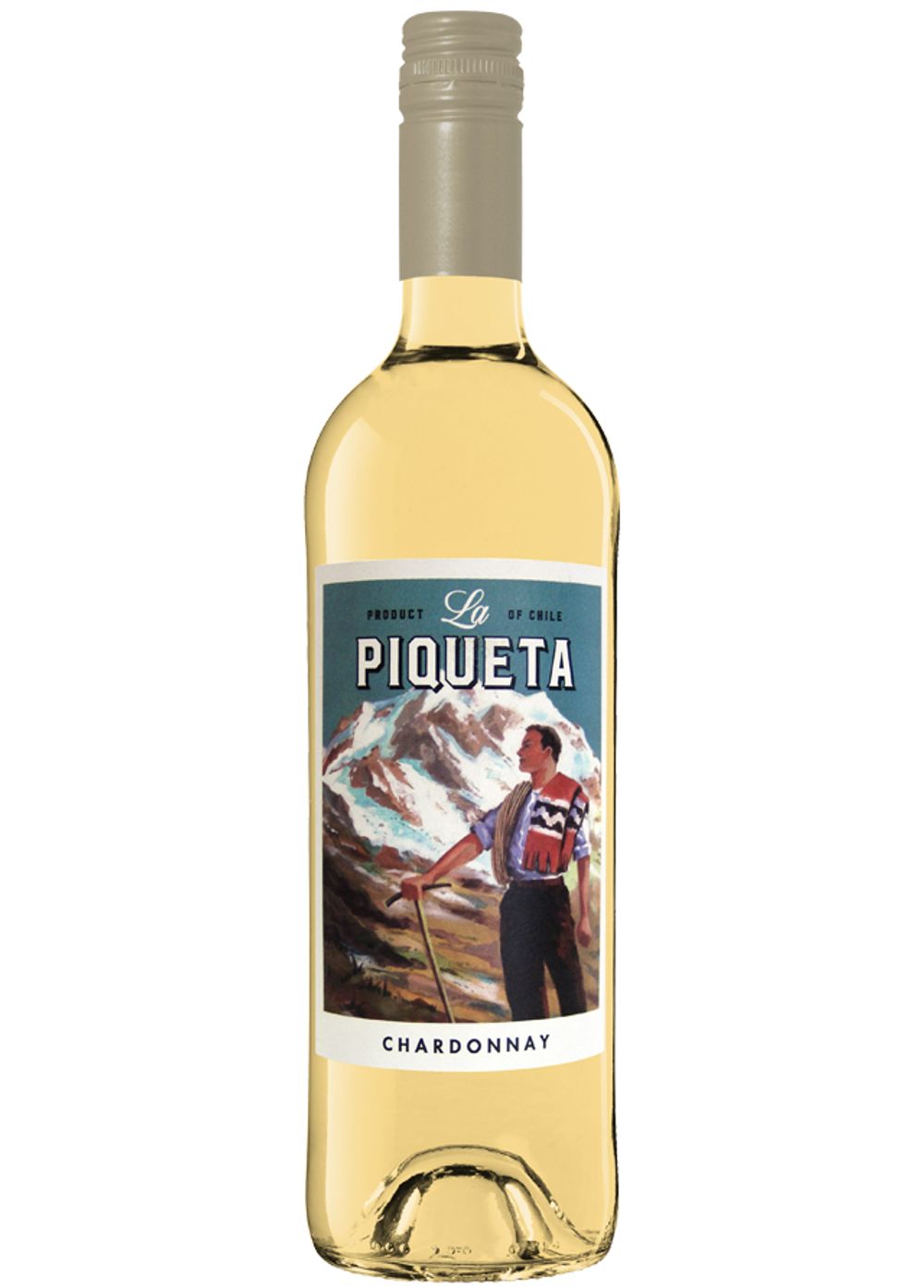
Again Felix Solis is starting with what it knows best by targeting mainstream off-trade and on-trade customers, with its first two wines, Pico Andino and La Piqueta, but in time sees opportunities to also develop a more premium wine offer from Chile. It is what Cochrane refers to as its two tier system, building quality and diversity across its range. “We want to build and develop for the future and premium Chile is a well travelled path.”
Investing in quality bulk wine
At the same time as it is expanding overseas in to Chile, it is also investing in more bottling and handling machinery at its Valdepenas facility in Spain, which will allow it to treat and process far more bulk wine that it has in the past, says Cochrane.
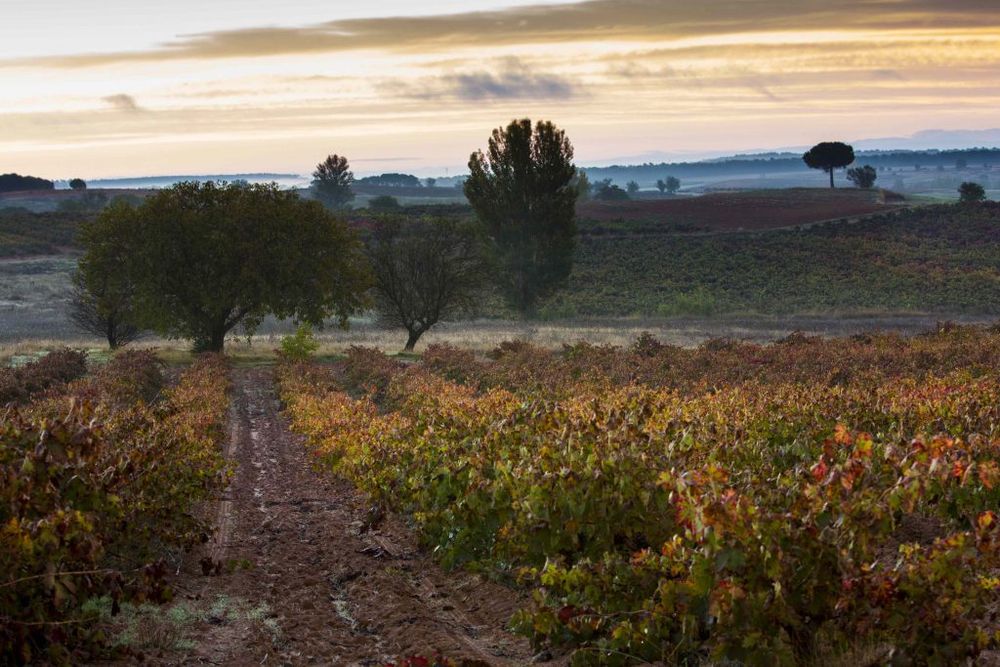
Felix Solis is now able to use its state-of-the-art bottling facilities in Spain to pack Chilean as well as its Spanish wines
It means it is able to marry the two sides of the business to offer its northern European customers, particularly in the UK, a fast track sourcing solution from Chile. It can either bring in wine from Chile in bottle, or by bulk. Giving customers across Europe access within a week to new stocks of Chilean wine rather than have to wait for 12 weeks for it to be sent by ship from South America. “It brings those wines within easy reach of our customers,” explains Cochrane. “It will be here ready in Spain.”
Because of the technical advances at its Spanish bottling facility it also means it can potentially provide a higher quality, more stable version of bulk wine that traditional bottlers are able to do, claims Cochrane.
“Every time you pass wine through a filtration process you impact on its quality which is what you are doing when handling bulk wine,” he explains.
This normally happens, he adds, at both the winery end of the process and when it arrives in flexitank at the bottler. Its new machinery means the wine does not need to be filtered and treated as normal at source, but instead can be shipped dry and then any sugars added during the final filtering processes in Spain. “Because the wine arrives in Spain from Chile dry it gives us much more control over the finished wine,” he explains.
Normally, he stresses, a bulk wine would be prepared in the country of production, including adding anything from 2gm to 5gm of residual sugar, which means there are stability concerns en route. He believes its process can take that stage out of the process and bring even further clarity and quality control to bulk wine.
It can also follow the same process for wines being transported within Spain between its six wineries there. Its main bottling centre in Valdepenas now has 14 separate bottling lines and is capable of packing 150,000 units (be it in bottle, PET etc) an hour. “We can use our economies of scale far more,” he adds.
So there you have it. It’s Felix Solis, but not as we know it.








































